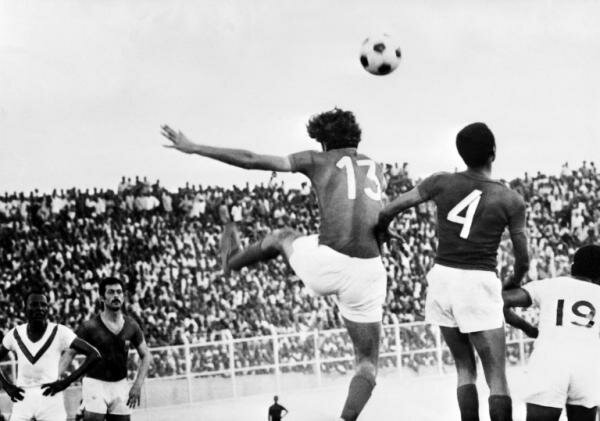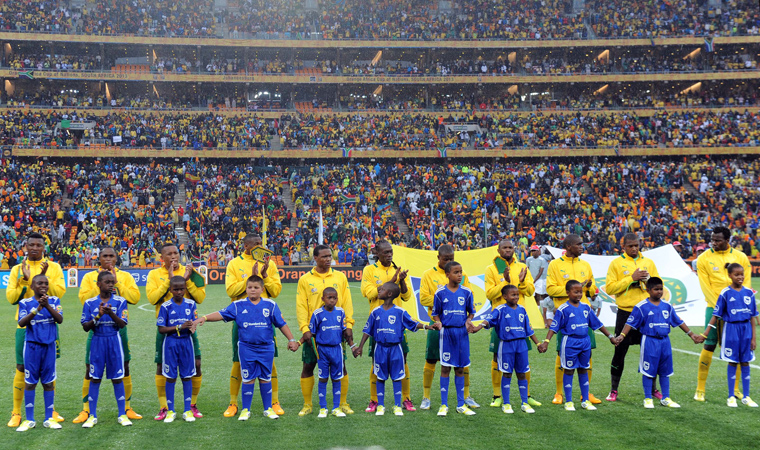Africa Cup, mirror of a continent
- To say that football lives with passion in Africa is not new. From Tangier to Cape Town and from Dakar to Mogadishu, the 54 countries that make up the continent and scientific languages reflect a unique cultural diversity. In this diversity, the ball is one of the few things that unites all Africans, and the African Peoples’ Cup is the most important competition played there.

This championship, the 34th edition of which is being played in Côte d'Ivoire (the final will be on February 11), has aroused the anger of the most powerful teams in Europe, because their best African players have been forced to leave them free to go with their selections in full season. The conflict between the African Football Confederation (AFK) and European clubs takes place every two years, every time the African Cup is played.
When the championship was played between June and July in 2019, it seemed they had found a solution, and the 2023 edition was expected to be held again at the same time. But as the rains in Côte d'Ivoire are very strong at that time, they decided to delay the championship this winter. “We cannot take risks,” said AFK President Patrice Motsepe.
The European championship that he looks at with mistrust was born in 1957, three years before the Euro Cup, at the first time of the independence of African countries and at the time when the pan-Africanist movement spread across the continent. In fact, African football is before free Africa, it came with the English in the 19th century, and when the decolonization process began, it was already widespread across the continent.

In 1955, the Asian-African Assembly was held in Bandung, Indonesia, giving way to the birth of the Non-Aligned Movement. A year later, Egyptian President Gamal Nasser nationalised the Suez Canal and made ridiculous leadership of the European colonial powers.
Meanwhile, in Lisbon, the FIFA Assembly was being held, where this pan-African feeling also arrived. Representatives of Egypt, Sudan, Ethiopia and South Africa spoke about the constitution of the African Football Confederation. FIFA, controlled by European federations, was against, but in 1957 the AFK was born, and that same year the first edition of the African Cup was held in Khartum, Sudan. Egypt, Sudan, Ethiopia and South Africa were in charge of playing, but South Africa was disqualified for refusing to present a team of black and white players. Until the end of the Apartheid system, the South African team did not participate in the Africa Cup.
The path of business
The number of participants increased as countries gained independence. At the same time, it acquired the characteristics of the world’s major sports championships. Just as European and American countries used football as a propaganda tool, the Africa Cup became a mirror of the continent’s political reality. Thus, in the 1960s, he dominated the Ghana team, chaired by Kwame Nkrumah and led by Pan-Africanism in its wager on football. The championship's reputation was still growing.
In the 1980s, Muammar al Kadafi, Hosni Mubara or Hassan II knew how to take advantage of the Cup’s success and managed to become hosts of the Libyan, Egyptian and Moroccan championship. Mandela also held his Africa Cup in 1996 and won the first time the South African team participated.

Today, through professional football, the Africa Cup has followed the path of business and has become the main source of income for the AFK, following the new form of colonialism practised by major global corporations. In this sense, the 34th edition bears the name of the French oil company TotalEnergies, and the final of the tournament will be played at the elegant Alassane Ouattara stadium, paid with Chinese capital.
In any case, the Africa Cup is the only competition that people across the continent see, and these matches are the only ones that some of their best players play “at home”. Some players, such as Eusebio, from Mozambique or Patrick Vieira from Senegal, chose to play with their host countries. Others, such as Jonathan Boateng, born in Germany, or Iñaki Williams, born in the Basque Country, have chosen to play with the selection of their country of origin. In addition, prominent African Cup players have been present, such as Maliko Salik Keita, Mohamed Salah of Egypt, Didier Drogba of the Ivory Coast or Roger Milla of Cameroon.
For the outrage of European clubs, between January and February of this year, all matches will be played at the head in every city and country on the continent, and the winning team will be welcomed by the crowd when they come back with the cup.
Like most Basques, I was for Athletic, no doubt. Like most Basques? Maybe it's not so clear. Beyond what you believe in Gipuzkoa, of course there will be everything, I found in Pamplona some young people who went with Mallorca, without seeking too much. For those who believe that... [+]
At the end of the Saturday Cup in Seville, we came to discuss two basic elements of our lives: Athletic and Euskera. Someone might think that the Basque country does not need elite football to merge with the circus around it or that football and politics should not be confused... [+]
The football game was invented by the English with the name football. They say the ball game first appeared in ancient Greece and then in China. But the football we know today was organized with its rules in the second half of the 19th century. The first clubs also appeared at... [+]










